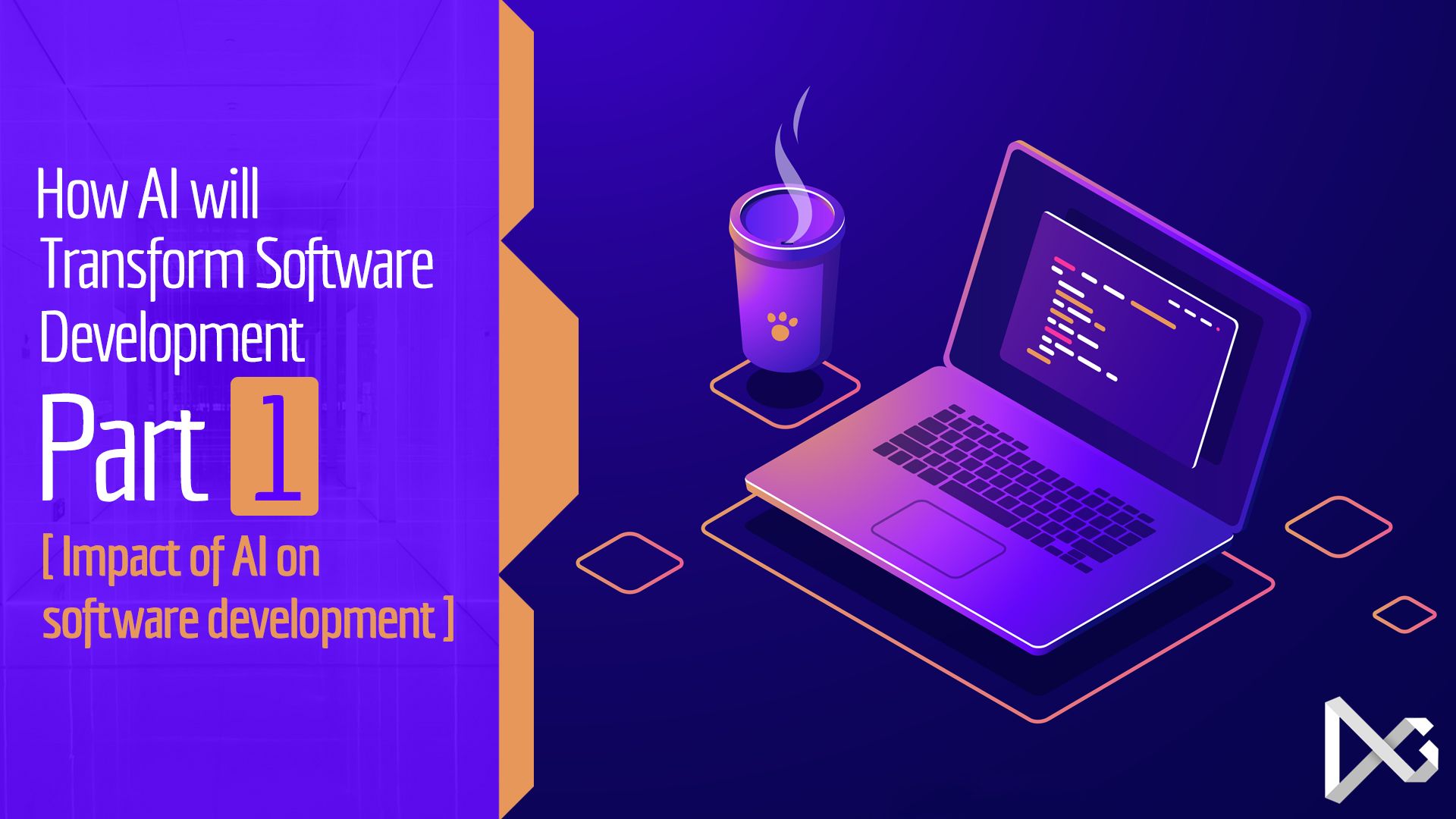How AI will Transform Software Development - Impact of AI on software development
As AI is already helping human developers at every stage of the development process, software development will only improve with AI.

While artificial intelligence (AI) is already effectively assisting human developers at every level of the development process, software development will only get better as it is about to undergo a huge change.
Artificial intelligence is revolutionizing the way developers work, resulting in significant productivity, quality and speed increases. Everything — from project planning and estimation to quality testing and the user experience — can benefit from AI algorithms.
The impact of AI on software development
AI will undoubtedly impact how developers create applications and how users interact with them in the modern environment. As organizations become more interested in AI technologies, artificial intelligence will certainly affect the future of software development.
Moreover, it is predicted that roughly 80% of businesses are investing in AI, with 47% of digitally advanced companies already defining AI strategies. Even more amazingly, AI tools should provide $2.9 trillion in corporate value in the foreseeable future.
To implement an AI strategy, companies must first comprehend the function of AI in software development by examining what may be changed.
AI: Reshaping the roles of software developers
The software developer's role is already changing, and it may look very different in ten years than it does now. However, it is important to remember that technology will not be able to replace developers anytime soon. The world is still a few years away from AI being able to write code on its own.
Instead, software developers are more likely to execute different activities and establish skills to work effectively with AI on the job. As a result, developers will be needed even more in the future, implying that AI and software development will certainly rise in tandem.
AI: Solving common software development challenges
As established, AI has already been supporting and helping software developers address different software development challenges by doing the following:
Automated code quality through code review and code optimization
Artificial intelligence will become a tool that software developers use to obtain new knowledge, optimize procedures, and, ultimately, produce better code rather than replacing them.
One of the major developments in AI software development is AI-enabled coding apps that incorporate "autocomplete" into the software development process to boost speed and accuracy during the coding process.
Another solution includes an AI-driven mentorship feature that enables new developers to build apps in real-time.
In the end, these technologies will democratize development, allowing developers to devote more time to problem-solving, design and other creative ideas that will maximize the value they can give to the company.
Automated DevOps
Machine learning AI technologies had some effects on software deployment, especially in the software development paradigm where developers frequently upgrade programs or apps to newer versions, such as increased efficiency in deployment control tasks.
There will be a huge danger in executing the software if developers fail to complete a process correctly during an upgrade.
AI can protect developers from such issues during upgrades and lessen the likelihood of deployment failure. Another benefit of artificial intelligence is that it allows machine learning algorithms to examine the deployment process.
Specifically, machine learning algorithms will enable the software to learn how specific users behave. This learned behavior helps it respond to different actions by serving variable content and automatically adjusting font size, buttons, and on-page elements. Such response results in a dynamic software experience that pulls in real-time user interaction data and utilizes it to propel improvements as developers make code changes.
This improved functionality, combined with ongoing user feedback, can reduce friction points in crucial areas, such as abandoned cart rates, conversion rates, and the design of more accessible software.
Automated security: Code security, vulnerability assessment, static and dynamic security review, open-source code security
Software security is a critical feature that must get considered throughout development. In this regard, data gets collected by the system from network sensors and software installed on the customer's end.
Companies can use AI to study data and use machine learning to discern anomalous behavior from typical behavior. Additionally, software development companies that incorporate AI into their development process can avoid delayed warnings, erroneous notifications and alarms.
Ultimately, coding advances and improves when developers use AI tools. Developers and testers do not have to waste time reviewing executable files riddled with faults and mistakes. It is much easier for them to detect and fix flaws quickly.
Automated test cases for quality assessment
The function of AI in software testing is becoming increasingly important in the quality assurance procedure. Quality assurance testing has always been a time-consuming, manual process with a wide margin of error.
One of the most significant advantages of artificial intelligence is that it allows for quick, accurate testing, which improves the process where bugs get found and addressed before a product is published, shortening the development cycle and guaranteeing a higher-quality end product.
Software design
To propose a definite solution, project planning and design require specialized knowledge and experience. Designers face a difficult problem in deciding on the best plan for each step.
AI technologies get used to automate some difficult tasks. Designers can, for example, employ an AI design assistant to understand the client's wants and preferences and then use that information to design a suitable project.
We'll talk about the benefits of AI (Artificial Intelligence) in Software Development in Part-2.
Originally Published at Entrepreneur



